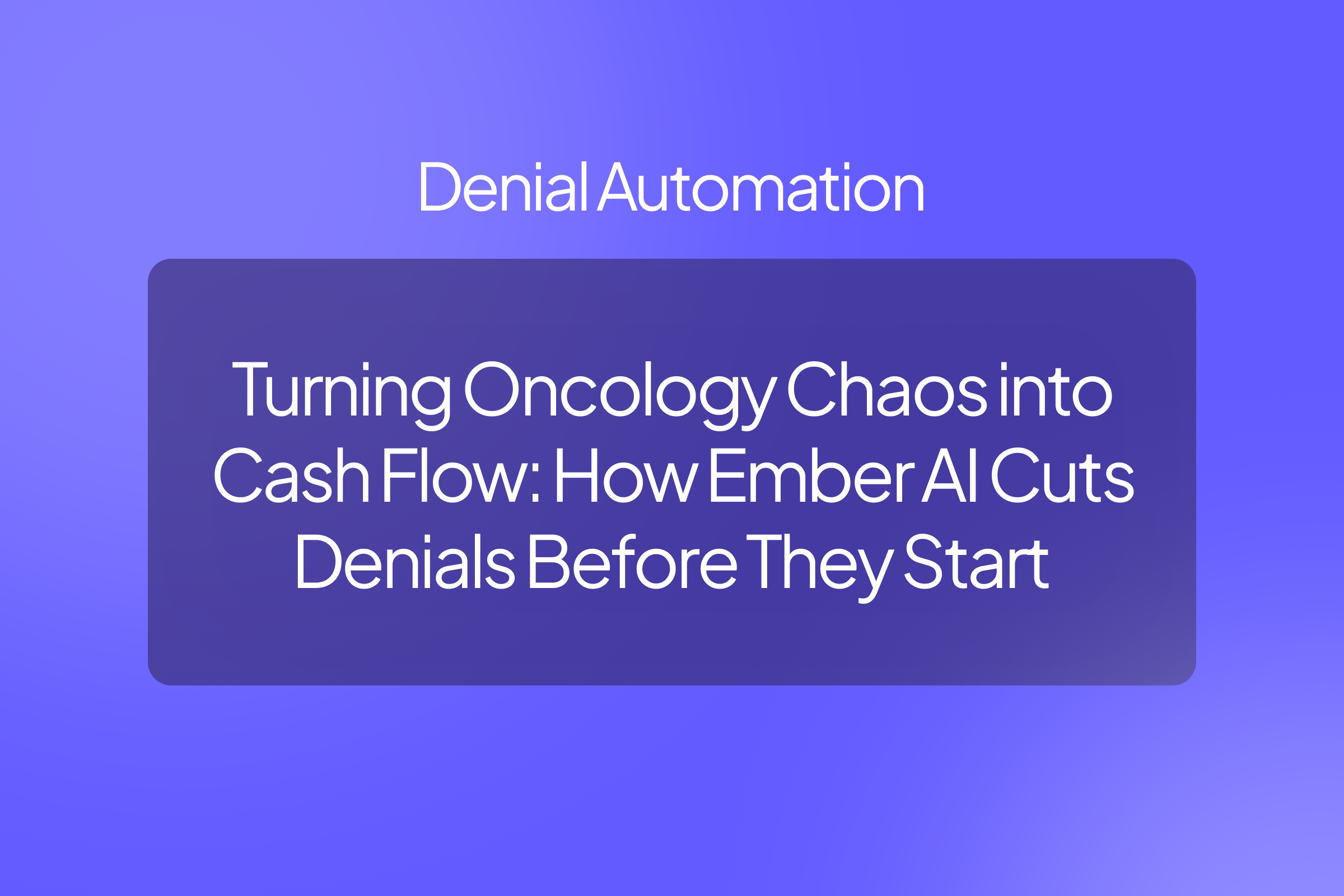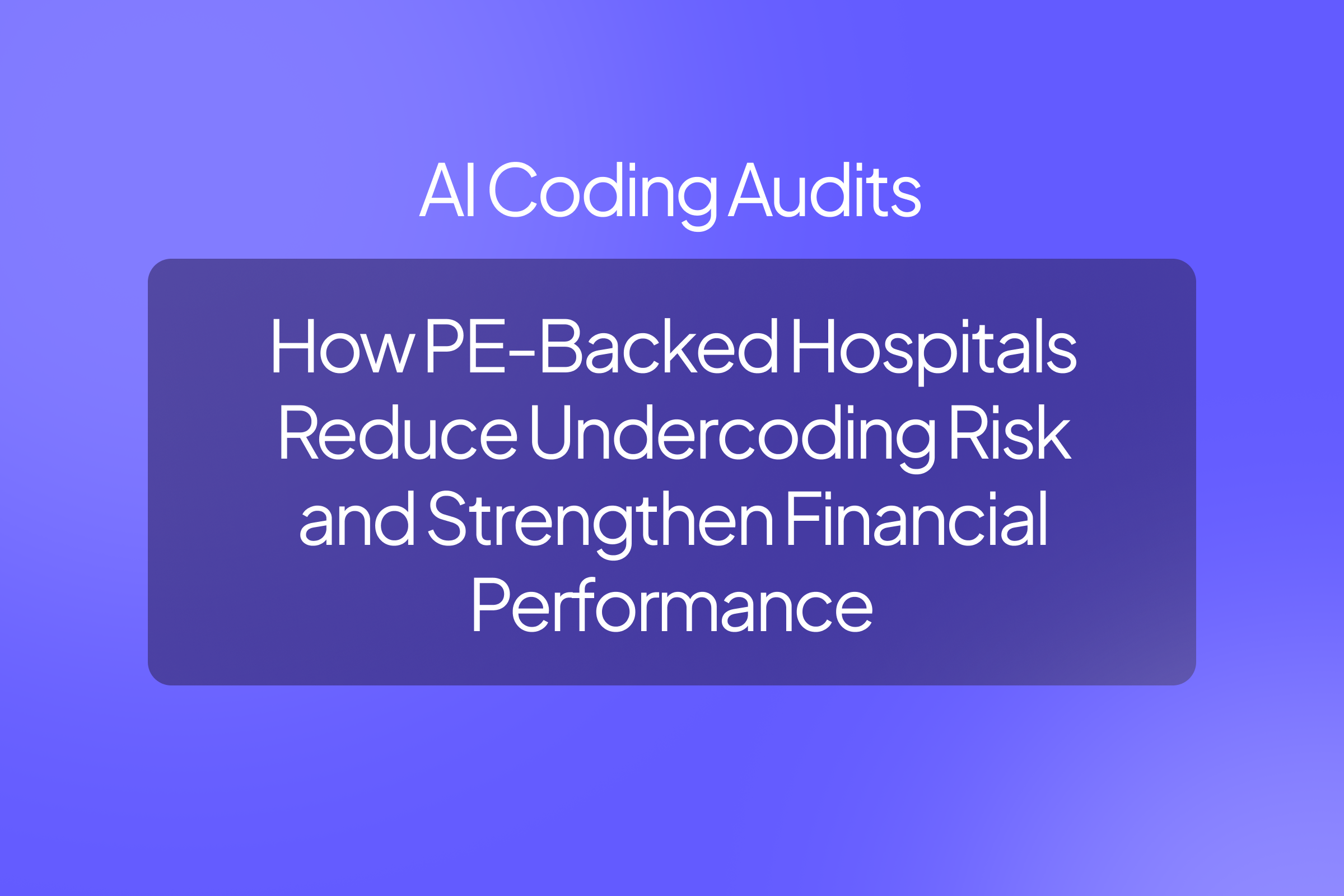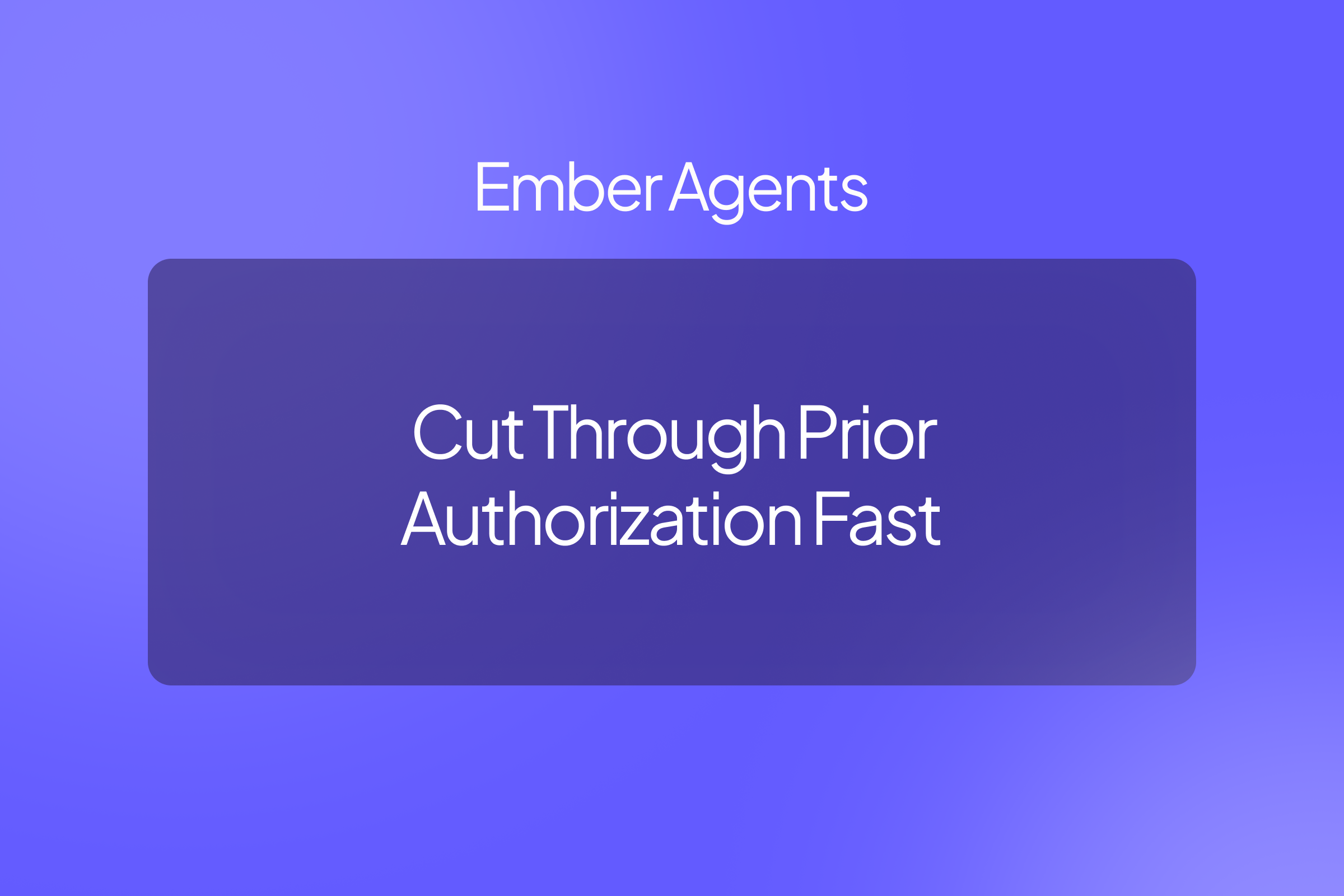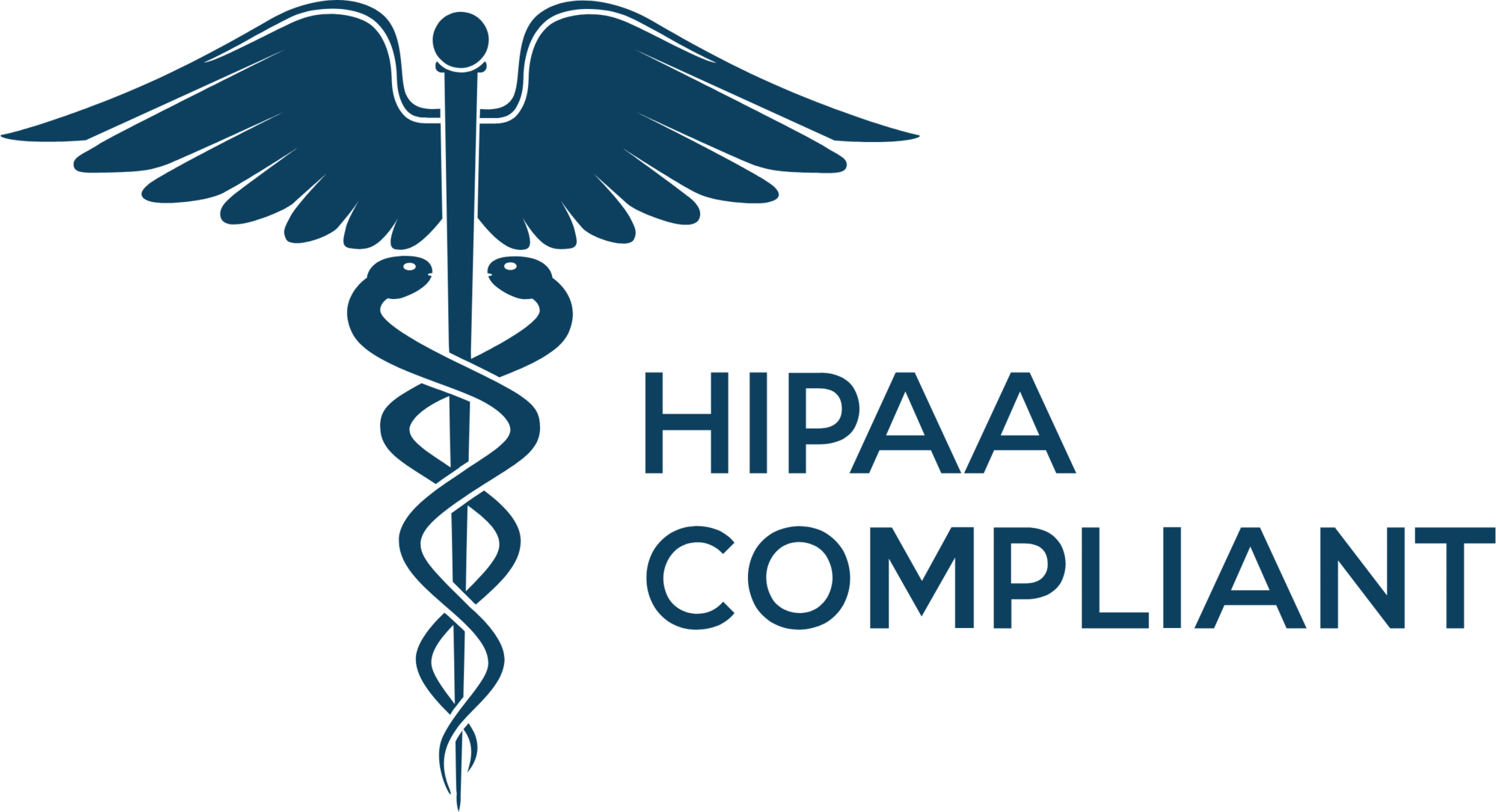
Turning Oncology Chaos into Cash Flow: How Ember AI Cuts Denials Before They Start
Introduction
Last month our Ember team sat down with leaders from a major U.S. comprehensive cancer center to dig into one thorny question: How can health‑system revenue teams finally get ahead of oncology denials and prior‑authorization grid‑lock?
Over the hour we heard first‑hand—from VPs of Financial Clearance, Revenue Cycle, Pharmacy and Innovation, and the Chief Strategy Officer—what keeps them up at night and what they need from technology partners. Their candor sharpened our own view of the market, and the conversation offers valuable lessons for every cancer center or health‑system executive wrestling with the same problems.
Challenges
Why It Matters
- Revenue Protection – Even a single‑digit swing in denial rates translates into millions of dollars for high‑cost oncology service lines.
- Patient Access & Experience – Delayed infusions and surgeries erode clinical outcomes and patient trust.
- Staff Burn‑out – Highly trained nurses, APPs and pharmacists are consumed by repetitive authorization work instead of patient care.
- Strategic Growth – Sustainable expansion into complex therapeutics, cellular therapy, or multi‑team surgical cases depends on a denial‑proof revenue backbone.
Strategic Insights for Health‑System Leaders
How Ember Turns Complexity into Competitive Edge
- Oncology‑Aware AI Engine – We combine rules‑based precision with deep‑learning contextual understanding built on the latest NCCN, payer and state medical‑board guidance.
- Weekly Policy Radar – A bulletproof scraping service monitors every contracted payer and flags rule changes before they trigger denials.
- Clinician‑Grade Appeal Generation – “Our goal is to give your RCM department the power of a clinician so they can write complex oncology appeals without a physician at their elbow.”
- Prior‑Auth Likelihood Scoring & Auto‑Submission – Models alert staff when a “no auth required” answer is likely to backfire and launch auths proactively.
- Outcome‑Proven – Early adopter orthopedic and oncology programs cut cost‑to‑collect by 46 % and slashed appeal turn‑time from hours to minutes.
Key Takeaways
- Denials are a clinical‑data problem, not just a billing problem. Embed oncology expertise and real‑time policy monitoring into every RCM step.
- Automation without specialization fails. Generic AI tools miss nuanced NCCN or payer language; oncology‑tuned engines win.
- Front‑end prediction beats back‑end firefighting. Use historical denial patterns to trigger auths and documentation before care is delivered.
- Segment, standardize, and escalate wisely. Automate repeatable low‑value tasks; focus human experts where clinical nuance is indispensable.
- With Ember, complexity becomes a competitive edge. Health systems that tame oncology revenue friction deliver faster care, happier clinicians, and stronger margins.
Ready to see how Ember can shrink your oncology denial curve? Get a free audit.
Lynn Hsing is a recognized leader in healthcare marketing. Having worked closely with health systems and providers, Lynn brings a nuanced understanding of the challenges they face — from administrative burden and claim denials to reimbursement delays and staff shortages. This firsthand insight has shaped Lynn’s ability to translate complex AI solutions into meaningful value for healthcare organizations.








